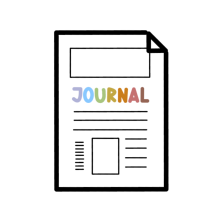Erhard, L., Hanke, S., Remer, U., Falenska, A., & Heiberger, R. H. (2024). PopBERT. Detecting Populism and Its Host Ideologies in the German Bundestag.
Political Analysis.
https://doi.org/10.1017/pan.2024.12 BibTeX
Alieva, I., & Carley, K. M. (2024). Exploring Russian Anti-War Discourse on Twitter during Russia’s full-scale invasion of Ukraine: Dynamics, Influence, and Narratives. Proceedings of the 18th International AAAI Conference on Web and Social Media.
BibTeX
Hanke, S., Sicakkan, H. G., Wolleghem, P. G. V., & Heiberger, R. H. (2024). Policy Actors’ Struggle for Attention: The Role of Peer Networks in the Migration Discourse on Twitter (X).
Nonprofit Policy Forum.
https://doi.org/doi:10.1515/npf-2023-0126 Abstract
Policy actors (PAs) like nongovernmental organizations, political parties or governmental institutions strategically communicate on social media to gain attention and thus influence the public agenda. We argue that networks of PAs engaged in the same issues (i.e., a PA’s peer network) are crucial to attracting the interest of a broad audience. Drawing on network theory, we posit that (i) ideological homophily, and (ii) the centrality and embeddedness in a PA’s peer network increase the attention received from all Twitter (now X) users. We investigate these premises by analyzing the European migration discourse on Twitter (2014–2020). The results of our study reveal that the centrality of PAs in their peer networks and ideologically similar relations considerably increase attention from the whole Twittersphere. These findings provide strong evidence that a PA’s role in its organizational peer network on social media governs the attention received in the overall discourse.BibTeX
Alieva, I., & Carley, K. M. (2024). Computational Network Analysis of Metajournalistic Discourse: Analyzing Journalism Coverage of Russia’s Invasion of Ukraine. Informed Democracy & Social - Cybersecurity (IDeaS) Conference.
BibTeX
Alieva, I., Kloo, I., & Carley, K. M. (2024). Analyzing Russia’s propaganda tactics on Twitter using mixed methods network analysis and natural language processing: a case study of the 2022 invasion of Ukraine. EPJ Data Science, 13, Article 1.
BibTeX
Abstract
Machine learning (ML) techniques have become one of the most successful scientific tools and changed the everyday life of people around the globe (e.g., search engines). A vast amount of digital data sources on human behaviour has emerged due to the rise of the internet and opened the door for computer scientists to apply ML on social phenomena. In the social sciences, however, the adoption of ML has been less enthusiastic. To investigate the relation of traditional statistics and ML, this paper shows how ML might be used as regression analysis. For that purpose, we illustrate what a typical social science approach might look like and how using ML techniques could contribute additional insights when it comes to estimators (non-linearity) or the assessment of model fit (predictive power). In particular, we reveal how epistemological differences shape the potential usage of ML in the social sciences and discuss the methodological trade-off of applying ML compared to traditional statistics.BibTeX
Unger, S., Erhard, L., Wieczorek, O., Koß, C., Riebling, J., & Heiberger, R. H. (2022). Benefits and detriments of interdisciplinarity on early career scientists’ performance. An author-level approach for U.S. physicists and psychologists.
Plos One,
17, Article 6.
https://doi.org/10.1371/journal.pone.0269991 Abstract
Is the pursuit of interdisciplinary or innovative research beneficial or detrimental for the impact of early career researchers? We focus on young scholars as they represent an understudied population who have yet to secure a place within academia. Which effects promise higher scientific recognition (i.e., citations) is therefore crucial for the high-stakes decisions young researchers face. To capture these effects, we introduce measurements for interdisciplinarity and novelty that can be applied to a researcher’s career. In contrast to previous studies investigating research impact on the paper level, hence, our paper focuses on a career perspective (i.e., the level of authors). To consider different disciplinary cultures, we utilize a comprehensive dataset on U.S. physicists (n = 4003) and psychologists (n = 4097), who graduated between 2008 and 2012, and traced their publication records. Our results indicate that conducting interdisciplinary research as an early career researcher in physics is beneficial, while it is negatively associated with research impact in psychology. In both fields, physics and psychology, early career researchers focusing on novel combinations of existing knowledge are associated with higher future impact. Taking some risks by deviating to a certain degree from mainstream paradigms seems therefore like a rewarding strategy for young scholars.BibTeX
Unger, S., Erhard, L., Wieczorek, O., Koß, C., Riebling, J., & Heiberger, R. H. (2022). Benefits and detriments of interdisciplinarity on early career scientists’ performance. An author-level approach for U.S. physicists and psychologists.
Plos One,
17, Article 6.
https://doi.org/10.1371/journal.pone.0269991 BibTeX
Heiberger, R. H. (2022). Applying Machine Learning in Sociology: How to Predict Gender and Reveal Research Preferences.
KZfSS Kölner Zeitschrift Für Soziologie Und Sozialpsychologie.
https://doi.org/10.1007/s11577-022-00839-2 Abstract
Applications of machine learning (ML) in industry and natural sciences yielded some of the most impactful innovations of the last decade (for instance, artificial intelligence, gene prediction or search engines) and changed the everyday-life of many people. From a methodological perspective, we can differentiate between unsupervised machine learning (UML) and supervised machine learning (SML). While SML uses labeled data as input to train algorithms in order to predict outcomes of unlabeled data, UML detects underlying patterns in unlabeled observations by exploiting the statistical properties of the data. The possibilities of ML for analyzing large datasets are slowly finding their way into the social sciences; yet, it lacks systematic introductions into the epistemologically alien subject. I present applications of some of the most common methods for SML (i.e., logistic regression) and UML (i.e., topic models). A practical example offers social scientists a ``how-to'' description for utilizing both. With regard to SML, the case is made by predicting gender of a large dataset of sociologists. The proposed approach is based on open-source data and outperforms a popular commercial application (genderize.io). Utilizing the predicted gender in topic models reveals the stark thematic differences between male and female scholars that have been widely overlooked in the literature. By applying ML, hence, the empirical results shed new light on the longstanding question of gender-specific biases in academia.BibTeX
Sicakkan, H. G., & Heiberger, R. H. (2022). Between Europeanism and Nativism: Exploring a Cleavage Model of European Public Sphere in Social Media.
Javnost - the Public,
0, Article 0.
https://doi.org/10.1080/13183222.2022.2067724 Abstract
The European Union’s common public sphere project dates back to the 1960s and relies on Europeanisation through the gradual eradication of communication boundaries between its member countries. However, it is evident by now that Europeanisation of national public spheres is hard to achieve by increasing overlaps between national public spheres, synchronisation of news reporting across national boundaries, or diffusion of Europeanist norms into national politics. The European Union’s common public sphere project may hence be in danger. This calls for explorations of other imaginable models of the public sphere for Europe. Are there traces of other modes of transnational public sphere emerging in Europe? In this article, we explore a models of the transnational public sphere which is based on an alternative concept of Europeanisation derived from the cleavage theory. By drawing on social media data and employing tools of social network analysis, we demonstrate the empirical possibility of a cleavage model of the European public sphere.BibTeX





